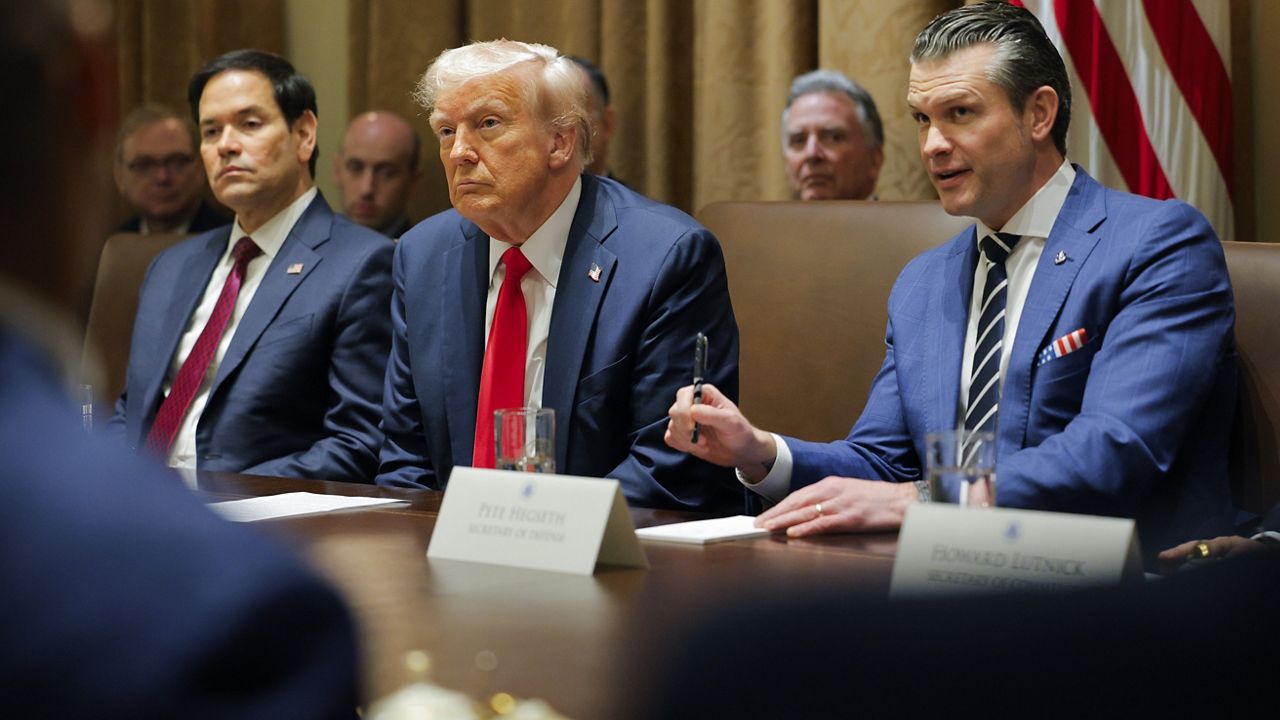How the Trump Administration Is Shaping Its Future Policy for Syria

“There is uncertainty over the future of US sanctions on Syria.”
The United States has yet to outline its policy on Syria, largely because it is not a priority for the Trump administration.
However, some recent statements by US officials, along with Washington's role in signing the agreement between Syrian transitional president Ahmed al-Sharaa and the commander-in-chief of the Syrian Democratic Forces, Mazloum Abdi, and the publications of some research centers, can provide a roadmap for understanding the potential directions of US policy on Syria.
US President Donald Trump's Middle East envoy Steve Witkoff appeared pleased with Ahmed al-Sharaa's leadership so far, and with the shift in his orientation from jihadism to pragmatism.
However, this praise was recently accompanied by criticism from the US State Department of the interim constitutional declaration, noting that it centralized power in the hands of a single person, denying any plans to completely lift sanctions on Syria.
In the first high-level direct contact between the two sides in years, the administration of US President Donald Trump presented Damascus with a list of conditions in exchange for partial easing of sanctions imposed on Syria.
However, the success of this process depends on Damascus's compliance with US demands, particularly those related to transparency, restructuring of power, and ending foreign interference.
Although Washington has issued a general license allowing the flow of humanitarian aid, the impact of the sanctions remains significant and hinders any real economic recovery.
It is worth noting that the US sanctions list on Syria includes ‘the Caesar Act’, ‘the Syria Accountability Act’, and ‘the Support for Terrorism Act’, some of which date back to 1979, in addition to individual sanctions against officials of the former regime and other current figures.
US Demands
The new Syrian administration hopes for a different approach from the U.S. regarding it, including lifting the sanctions imposed on the country during the rule of Bashar al-Assad's regime, to confront the intractable economic crises that have pressured Syrians for years.
Reuters recently revealed, citing Syrian and US diplomatic sources, the first direct contact between Damascus and Washington during the Donald Trump administration.
The contact brought together Syrian Foreign Minister Asaad al-Shaibani and US Deputy Assistant Secretary of State Natasha Franceschi during a meeting on the sidelines of the Syria Donors Conference in Brussels on March 18.
The U.S. presented Syria with a list of conditions in exchange for an exemption or partial easing of some sanctions imposed on it, without specifying the type of easing offered or setting a timeline for meeting these conditions.
The document refers to a US demand that Syria destroy any remaining chemical weapons stockpiles, cooperate on counterterrorism, and ensure foreigners are not in senior governing roles.
In addition, Washington asked Damascus to appoint a liaison to assist U.S. efforts to find American journalist Austin Tice, who has been missing in Syria since 2012.
Despite more than a decade since his disappearance, his case remains a priority for Washington and is directly linked to any dialogue with the Syrian authorities.
For its part, the Trump administration would grant at least a one- to two-year extension of an existing exemption that allows transactions with Syrian governing institutions.
It was unclear when this might take place after Syria meets the US conditions or if the Syrians were given a deadline at all.
On March 21, US State Department Spokesperson Tammy Bruce said that Washington is monitoring the actions of Syrian leaders as it determines its future policy.
In a daily press briefing, she expressed concern that the constitutional declaration would grant Syrian interim President Ahmed al-Sharaa excessive powers, believing that this could affect the balance of the political process and the future of the country.
“We also continue to call for the formation of a civilian-led, inclusive government that can ensure the effectiveness, responsiveness, and representativeness of national institutions,” she added.
On the same day, Sen. Elizabeth Warren and Rep. Joe Wilson called on the Secretaries of State and Treasury to reconsider US sanctions on Syria.
“The sanctions imposed more than a decade ago targeted a regime that no longer exists and now threaten to undermine U.S. national security objectives and hinder Syria's reconstruction,” the two lawmakers said.
They noted that measures such as the comprehensive ban on financial services and investment hinder economic recovery, push Syrians toward illicit markets, and create opportunities for adversaries like Iran and Russia to consolidate their influence.
A few days ago, U.S. Vice President J.D. Vance said that his country would not deploy military forces in Syria, but he indicated that it possessed diplomatic and economic tools that could help protect minorities there.
In statements to Fox News, he added that the Trump administration must remember the nature of its dealings with the Syrian regime.
He revealed that Washington is holding talks with its allies and working behind the scenes to encourage the new Syrian government - which he described as extremist, to protect minorities such as Christians, Druze, and others.

Collaboration or Blackmail?
In its final days, the Biden administration opened a door to dialogue with the new Syrian administration after the overthrow of Bashar al-Assad's regime on December 8, 2024.
On December 20, State Department official Barbara Leaf met with the head of the administration, Ahmed al-Sharaa, in Damascus, while unannounced contacts by US diplomats with Foreign Minister Asaad al-Sheibani continued.
Last January, the Biden administration announced additional sanctions waivers for certain activities in Syria for the next six months to facilitate access to essential services.
Washington also issued a general license allowing Syria to conduct transactions with government institutions, as well as certain energy transactions and personal financial transfers.
The US Treasury Department explained in a statement at the time that this step was intended to help ensure that sanctions do not impede essential services and the continuity of governance functions throughout Syria, including the provision of electricity, water, and sanitation.
However, the events taking place on the Syrian coast, accompanied by the spread of videos of violations committed by some forces participating in the attack on the remnants of the Assad regime in that region, have set the clock on the new Syrian administration's direction back to square one.
In addition, observers have noted that some American and European research centers have begun using the term ‘Western Syria’ to refer to the Syrian coast, indicating the birth of a new mindset in Western policy that may pave the way for a redrawing of the map of influence and balance within the country.
James Risch, Chairman of the Senate Foreign Relations Committee, used this term in his comment on the coastal incidents, saying, “The massacre of defenseless Christians and Alawites in northwestern Syria is a heinous act and a reminder of the need for the U.S. to exercise caution in Syria.”
On his part, the researcher Saad al-Sharae told Al-Estiklal that the recent American demands have several dimensions, including that the Trump administration may be serious about engaging in dialogue with the new Syrian administration, especially since some of these demands include direct cooperation.
He noted that there is some concern within the new Syrian administration that this is a form of blackmail, as Washington will not lift its sanctions if Damascus does not fully implement these demands.
Mr. al-Sharae concluded that there is no consensus within the Trump administration on how to deal with the new situation in Syria, pointing to a division within the US administration between two parties, one of which prefers to engage with the new Syrian administration, while the other takes a more hardline stance.

Differing Positions
In a related context, several reports have indicated that a clear American division has emerged over the past period through a set of differing positions regarding the Syrian issue.
On the one hand, the US State Department clearly wants to engage in political dialogue with the new Syrian administration, encouraged by many voices, led by Saudi Arabia, with calls to appoint a US special envoy for Syria who would communicate directly with the Syrian administration.
On the other hand, the Pentagon stands slightly further back. Its desire to cooperate with al-Sharaa’s administration is purely operational, with the goal of ensuring the integration of the Syrian Democratic Forces into the new Syrian army and ensuring a proper US withdrawal should President Trump decide to withdraw his forces from Syria.
The most hawkish stance against the new Syrian administration lies within Trump's small team at the National Security Council. This team's approach to Syria is purely ‘counterterrorism’, with Sebastian Gorka, the director of the National Security Council's Counterterrorism Office, playing a direct role in shaping it.
This team's influence and influence are also reinforced by Director of National Intelligence Tulsi Gabbard, who is a staunch opponent of Islamist groups in general, and Syrian opposition factions in particular.
Earlier this month, disagreements led to heated discussions between the White House and the State Department over Secretary of State Marco Rubio's statement condemning the violence on the Syrian coast.
Informed sources reported that the White House sought a more forceful statement, while the State Department opposed it to provide more balance.
The State Department later drafted a public statement condemning the sectarian violence, addressing sectarian infighting, and calling on the Syrian interim authorities to hold the perpetrators accountable.
The bloody events on the Syrian coast have significantly strengthened the US's counterterrorism approach and weakened the State Department's position and its approach to engaging in political dialogue with the new Syrian administration.
Reuters reported last month that “Israel” is pressuring the U.S. to keep Syria weak and decentralized.
To further this goal, observers believe Israel is playing an influential role in shaping the US position on the new Syrian administration, seeking to ensure that any US engagement does not conflict with its security and strategic interests in the region.

The surprising and most dangerous US position on the Syrian issue, according to observers, is the statement by Steve Witkoff, President Trump's Middle East envoy, regarding the possibility of Israeli normalization with Lebanon and Syria.
They noted that the latter position is extremely dangerous and threatens a scenario in which Syria and its president, Ahmed al-Sharaa, will besiege Syria and force it to normalize relations with the Israelis in exchange for recognition and economic support.
Because the Trump administration has not yet decided on its final policy on Syria or received any responses from the new Syrian administration, the State Department has decided to send a second delegation to Damascus to meet with Ahmed al-Sharaa in mid-April.
Reports revealed that Natasha Francesca is likely to lead the delegation, indicating that the talks will focus on US concerns and demands, which remain limited to the demands of the Aqaba meeting, in addition to the violations on the Syrian coast and the constitutional declaration.
Sources
- US issues demands to new Syrian government in exchange for sanctions relief
- Trump administration monitoring actions of Syria's new rulers, State Dept says
- Syria Sanctions Relief Sought by Bipartisan Pair of Lawmakers
- Annual Threats Assessment of the U.S. Intelligence Community
- Vance calls for stronger US action to safeguard Syria’s minority communities
- Steve Witkoff and Tucker Carlson: Key Middle East points from US envoy interview











